Find Help
More Items From Ergsy search
-

Having a kidney transplant
Relevance: 100%
-

Patient Stories - Having a kidney transplant
Relevance: 92%
-
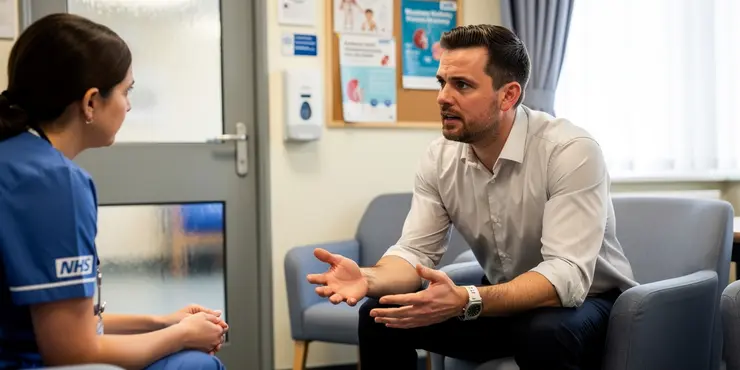
Matthew's Story: Kidney Transplant - Part 1
Relevance: 90%
-
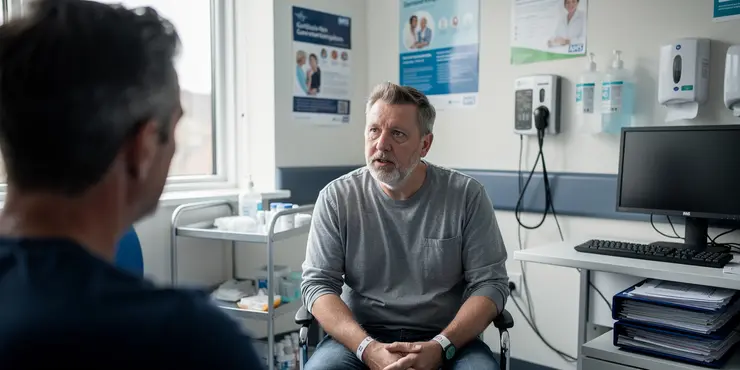
Kidney transplant waiting stories – DJ Ace and Lauren | NHS Organ Donation
Relevance: 78%
-

Chronic kidney disease: What are the treatments?
Relevance: 63%
-
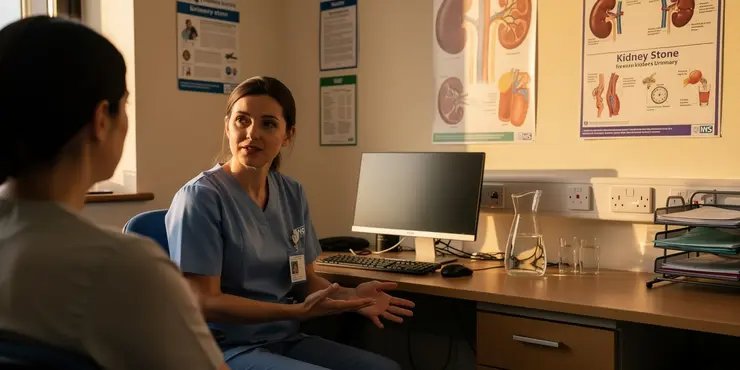
What are kidney stones?
Relevance: 50%
-
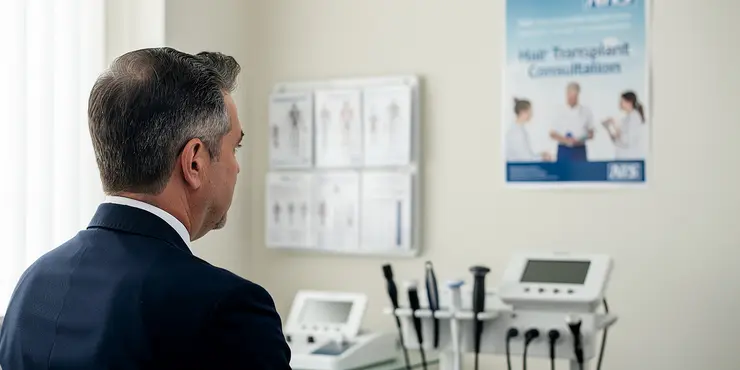
Hair Transplants in Turkey
Relevance: 50%
-
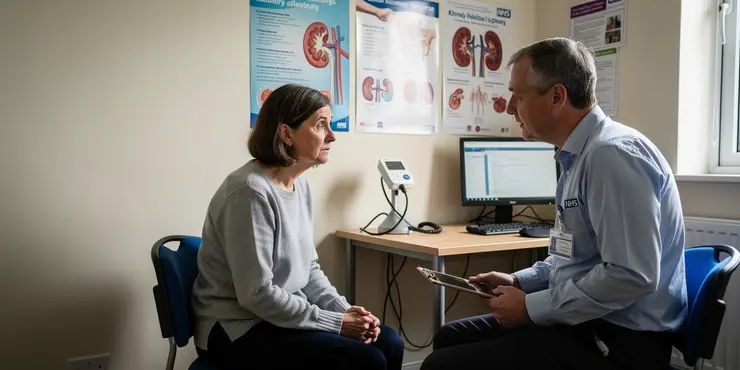
What is my risk of kidney failure with CKD (chronic kidney disease) | UHL NHS Trust
Relevance: 49%
-
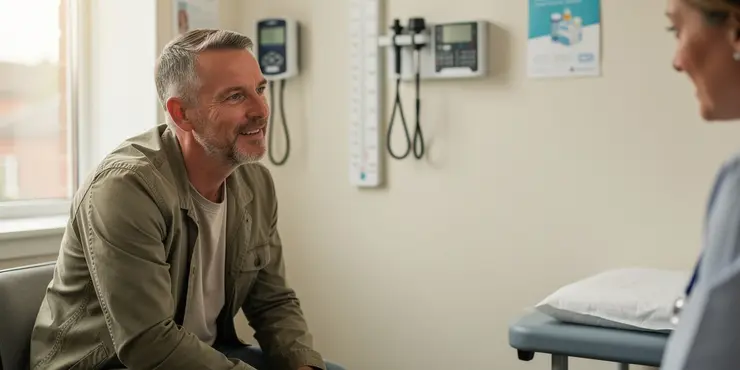
Bernard's Story - Lung Transplant
Relevance: 48%
-
Cornea transplant - Your journey
Relevance: 48%
-
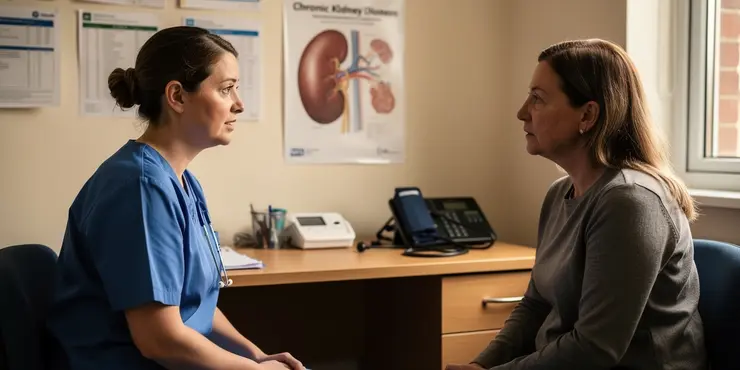
What causes chronic kidney disease?
Relevance: 48%
-
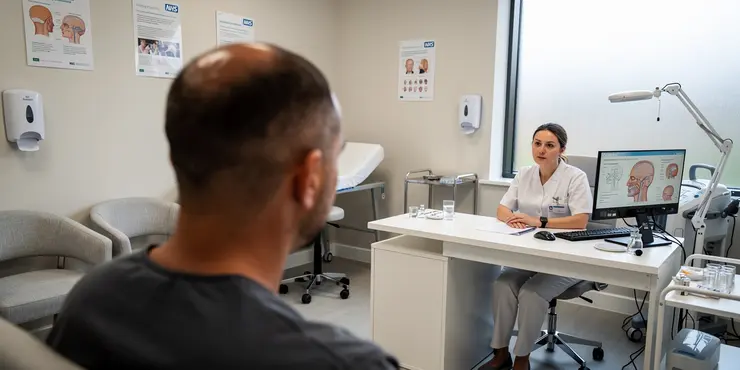
Are hair transplants in Turkey safe?
Relevance: 48%
-
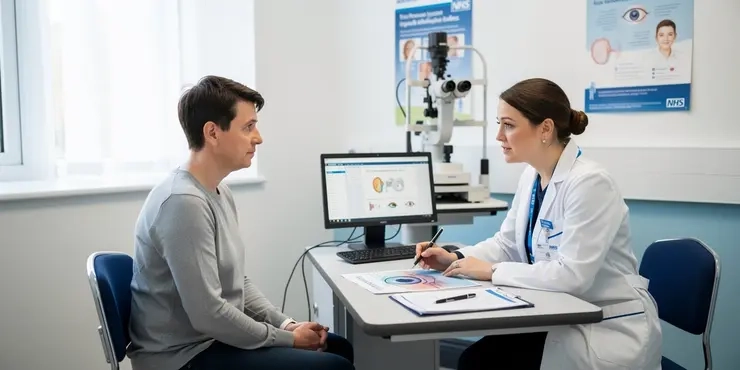
Cornea transplant patient Information
Relevance: 47%
-

Living with early stage kidney disease
Relevance: 45%
-

Liver transplant - Patient experience - Part 1 (Colin)
Relevance: 45%
-

What is the cost of a hair transplant in Turkey?
Relevance: 45%
-

Liver transplant - Patient experience - Part 2 (Lynne)
Relevance: 45%
-

What are the risks associated with hair transplants in Turkey?
Relevance: 45%
-

Heart-lung transplant patient shares her story
Relevance: 44%
-

What techniques are used for hair transplants in Turkey?
Relevance: 44%
-
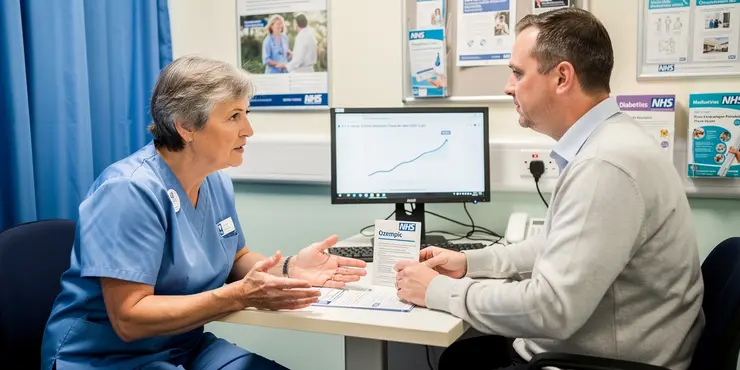
Does Ozempic have an impact on kidney function?
Relevance: 44%
-

How should I prepare for a hair transplant in Turkey?
Relevance: 42%
-

Will I need a follow-up visit after my hair transplant in Turkey?
Relevance: 41%
-

How long should I stay in Turkey for my hair transplant?
Relevance: 41%
-

NHSGGC - Diet and Chronic Kidney Disease (CKD)
Relevance: 40%
-
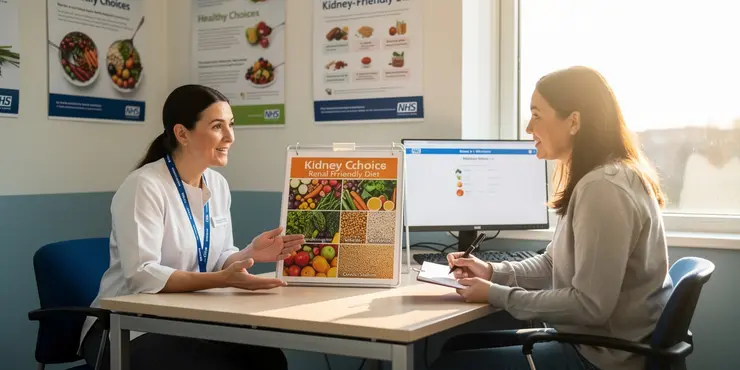
What should I eat to help with chronic kidney disease?
Relevance: 40%
-
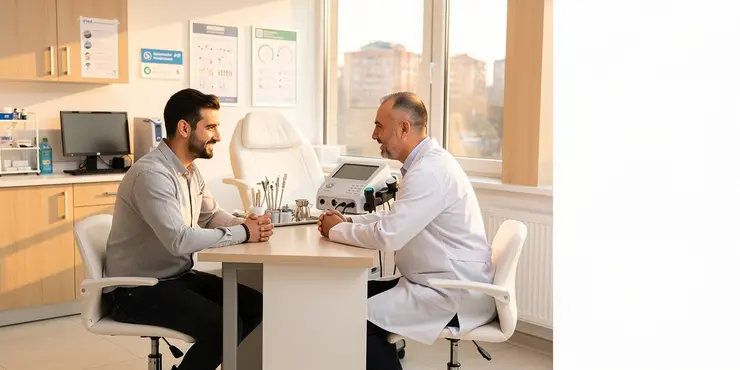
Is language a barrier for a hair transplant in Turkey?
Relevance: 39%
-

Home dialysis help for kidney patients
Relevance: 35%
-

Do I need a visa for a hair transplant in Turkey?
Relevance: 31%
-
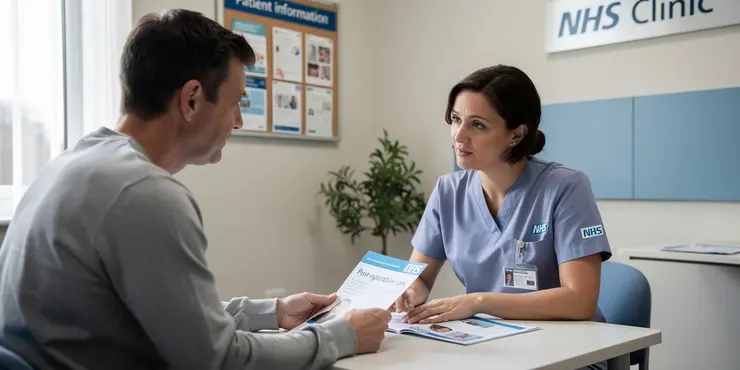
How soon can I return to work after a hair transplant in Turkey?
Relevance: 27%
-
What are some common reasons blood transfusions are needed?
Relevance: 23%
-

Who is at risk for severe illness from West Nile Virus?
Relevance: 23%
-
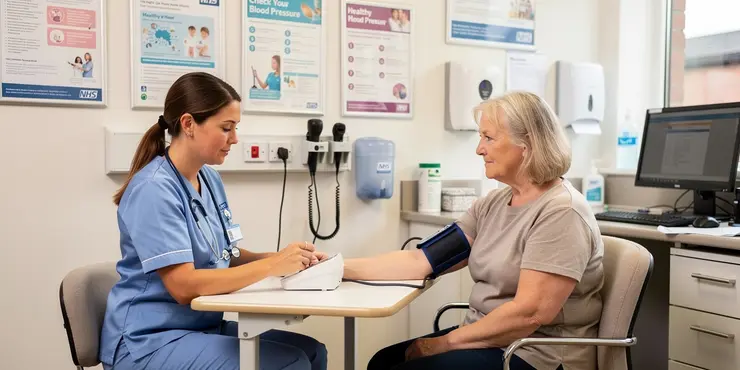
What are the risks of having high blood pressure?
Relevance: 22%
-

Can high blood pressure lead to other health problems?
Relevance: 22%
-
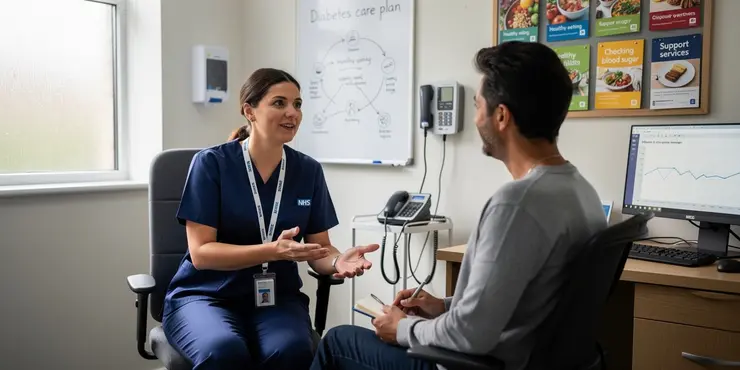
What complications are associated with Type 2 Diabetes?
Relevance: 22%
-
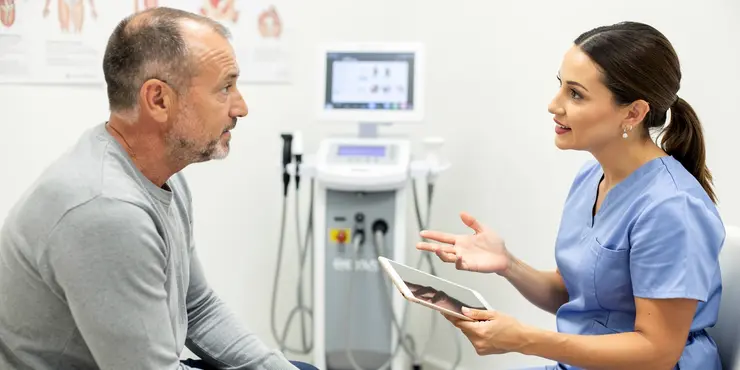
Why is Turkey a popular destination for hair transplants?
Relevance: 19%
-

What is the recovery time after a hair transplant in Turkey?
Relevance: 18%
-
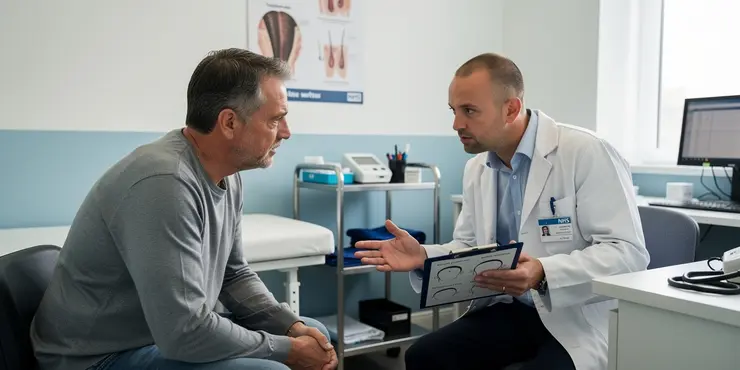
Can foreigners easily travel to Turkey for a hair transplant?
Relevance: 18%
-

Will I feel pain during the hair transplant procedure in Turkey?
Relevance: 18%
-

How long does a hair transplant procedure take in Turkey?
Relevance: 17%
Having a Kidney Transplant
Overview
A kidney transplant is a surgical procedure in which a person with kidney failure receives a new kidney from a donor. The operation can significantly improve the quality of life for people with end-stage renal disease (ESRD). In the UK, kidney transplants are conducted under the NHS and are deemed a critical medical intervention.
Eligibility for Transplant
To be considered for a kidney transplant, patients must undergo an extensive evaluation process. This includes assessments of overall health, compatibility with potential donors, and the ability to adhere to post-operative care. Individuals with certain conditions, like active infections or cancers, may not be eligible until these issues are resolved.
Finding a Donor
Kidney donors can be either deceased or living. A living donor might be a family member, a friend, or even a stranger. Deceased donor kidneys come through the NHS Organ Donation Register. Patients in need of a transplant are placed on a waiting list, and the matching process considers factors such as blood type, tissue compatibility, and the urgency of the patient’s condition.
The Transplant Procedure
The kidney transplant surgery typically lasts around three to four hours and is performed under general anaesthesia. Surgeons place the new kidney in the lower abdomen and connect it to the nearby blood vessels and bladder. The patient’s own kidneys are usually left in place unless they cause complications.
Post-Operative Care
After the transplant, patients require close monitoring and medications, such as immunosuppressants, to prevent their body from rejecting the new kidney. Regular follow-ups with healthcare providers are crucial for ensuring the success and longevity of the transplanted kidney. Lifestyle adjustments, including a healthy diet and avoiding infections, are also necessary.
Long-Term Outlook
A successful kidney transplant can last many years, significantly enhancing the recipient’s quality of life. However, recipients must take lifelong medications and undergo regular health check-ups. Although there are potential risks like organ rejection or infection, advances in medical science continually improve outcomes and survival rates.
Conclusion
Kidney transplants offer a lifeline for patients with severe kidney disease in the UK. The comprehensive healthcare system ensures adequate evaluation, surgery, and post-operative care, making this life-saving procedure accessible and effective for many individuals in need.
Having a Kidney Transplant
Overview
A kidney transplant is an operation. In this operation, a person gets a new kidney because their kidneys do not work well. This can make life much better for people who are very sick with kidney problems. In the UK, the NHS helps people to get kidney transplants.
Eligibility for Transplant
To get a kidney transplant, doctors need to check if you are healthy enough. They will check if your body can use the new kidney. People with certain health problems like infections or cancer may have to wait until they get better.
Finding a Donor
A donor is someone who gives you their kidney. The donor can be someone who is alive, like a family member or friend, or someone who has passed away. In the UK, there is a list for people waiting for a new kidney. Doctors try to match donors with people on the list based on blood type and other factors.
The Transplant Procedure
The operation to get the new kidney takes about three to four hours. You will be asleep during the surgery. Doctors place the new kidney in your lower belly and connect it to your blood vessels and bladder. Usually, your old kidneys stay in your body unless they are causing problems.
Post-Operative Care
After the transplant, doctors will watch you closely. You will need to take medicine so your body accepts the new kidney. You will need to visit doctors often. It’s important to eat well and avoid getting sick to help the kidney work well.
Long-Term Outlook
If the transplant is successful, the new kidney can last for many years. It can help you feel much better. You will need to take medicine for the rest of your life and visit the doctor often. There are risks, like the kidney might stop working or you might get an infection, but doctors are always finding better ways to keep kidneys healthy.
Conclusion
Kidney transplants give hope to people with serious kidney problems in the UK. The NHS helps make sure that people who need new kidneys get the care they need before, during, and after the transplant.
Frequently Asked Questions
What is a kidney transplant?
A kidney transplant is a surgical procedure to place a healthy kidney from a donor into a person whose kidneys no longer function properly.
Who can be a kidney donor?
A kidney donor can be a living person (usually a relative or friend) or a deceased person who has opted to donate their organs after death.
What are the eligibility criteria for a kidney transplant in the UK?
Eligibility is determined based on various factors including overall health, the severity of kidney disease, and suitability for surgery. Comprehensive evaluations are conducted to establish eligibility.
How long is the waiting time for a kidney transplant in the UK?
The waiting time can vary greatly depending on factors like blood type, tissue match, and availability of a suitable donor. On average, it can take anywhere from a few months to several years.
What are the risks involved with kidney transplant surgery?
Risks include infection, bleeding, blood clots, and the possibility of the body rejecting the new kidney. Long-term complications can also arise.
What does the pre-transplant evaluation entail?
The pre-transplant evaluation includes a range of tests and assessments to ensure the patient's suitability for transplant surgery, including blood tests, imaging studies, and psychological evaluations.
How successful are kidney transplants?
Kidney transplants are generally very successful, with success rates around 90-95% for living donor transplants and slightly lower for deceased donor transplants.
What is the recovery time after a kidney transplant?
Recovery time can vary, but most people are able to return to normal activities within 3-6 months after surgery.
What medications will I need to take after a kidney transplant?
Post-transplant, patients are required to take immunosuppressant medications to prevent the body from rejecting the new kidney, as well as other medications as needed.
How often will I need to have follow-up appointments after a kidney transplant?
Frequent follow-up appointments are necessary, especially in the first year after the transplant, to monitor kidney function and overall health.
Can I live a normal life after a kidney transplant?
Many people go on to lead normal, active lives after recovering from a kidney transplant, although they must take lifelong medications and attend regular check-ups.
How does a kidney transplant affect diet and lifestyle?
Post-transplant, a healthy diet and lifestyle are crucial. Patients are often advised to follow a balanced diet, avoid certain foods, and engage in regular exercise.
What are the signs of kidney rejection?
Signs of rejection can include fever, reduced urine output, pain or tenderness over the transplant site, and swelling or weight gain caused by fluid retention.
Can I travel after a kidney transplant?
Yes, patients can travel after a kidney transplant, but it’s important to plan ahead, ensure access to medical care if needed, and continue taking medications as prescribed.
What support is available for kidney transplant patients in the UK?
Support is available from healthcare teams, charities like the National Kidney Federation, and support groups that offer resources and advice for patients and families.
What is a kidney transplant?
A kidney transplant is when a doctor gives you a healthy kidney from another person. This can happen if your kidneys are not working properly.
Kidneys help clean your blood. Everyone has two kidneys, but you can live with just one.
Here are some tips to help understand:
- Look at pictures or videos about kidney transplants.
- Ask a friend or family member to explain it to you.
- Talk to your doctor if you have questions.
A kidney transplant is an operation to put a healthy kidney from someone else into a person whose kidneys do not work well anymore.
Who can give a kidney?
A kidney donor is someone who gives a kidney to help another person. This can be someone who is alive, like a family member or friend. It can also be someone who has died and wanted to give their organs to help others.
Who can have a kidney transplant in the UK?
Do you want to know who can have a kidney transplant in the UK? Here are some simple rules to understand:
- You need to be sick with kidney problems.
- The doctor must say a transplant is safe for you.
- Certain health conditions might stop you from having a transplant.
- Your age might be important, but many people can still get a transplant.
If you find reading hard, you can ask someone to help you understand. You can also use tools that read the words to you. This makes it easier to know what you need to do.
Doctors decide if someone is allowed to have a special kind of operation. They look at many things. They check how healthy the person is, how bad their kidney problem is, and if they can safely have the surgery. Doctors do many tests to make sure it is safe.
How long do you wait for a new kidney in the UK?
Here is an easy answer to your question:
People in the UK often wait for a new kidney. This is called a kidney transplant. The waiting time can be different for each person.
- Some people wait for 2 years.
- Some people wait for 5 years or more.
- Some people might get a kidney sooner.
If you want to know more, you can:
- Talk to your doctor. They can give you more information.
- Use a calendar to track your waiting time.
- Stay healthy while you wait. Eat good food and exercise.
How long you wait can be different for everyone. It depends on things like your blood type and finding the right match. Sometimes, you might wait a few months. Other times, it can take many years.
Some things can help while you wait. You can try to stay healthy and talk to your doctor about what to expect. You can also use calendars or apps to keep track of time while you wait. It's important to stay hopeful!
What can happen during and after kidney transplant surgery?
When someone gets a new kidney, it is called a kidney transplant. Sometimes, things can go wrong. Here are some things to think about:
- Infection: The body might get sick after the surgery. Doctors give medicine to help prevent this.
- Rejection: Sometimes the body may not like the new kidney. This means the body tries to fight it. Medicine helps with this too.
- Bleeding: There could be too much bleeding during or after the surgery.
- Blood Clots: Clumps of blood might form in veins, which can be dangerous.
It is important to talk to a doctor about these things. They can explain more and help you understand. Using pictures, simple words, and videos can also help learn more.
When you get a new kidney, there are things that can go wrong. You might get an infection or bleed. Sometimes, blood clots can happen. Your body might not like the new kidney and try to get rid of it. Problems can also happen later on.
Tools like picture books or audio stories can help you understand better. Talking with a friend or family member can also help.
What happens before a transplant?
Before someone gets a new organ, doctors need to check if they are ready. This is called a pre-transplant check.
Doctors will:
- Ask questions about health and family.
- Do tests like taking blood or x-rays.
- Talk about staying healthy before the transplant.
If you have trouble reading, ask a friend or family member for help. You can also use a computer or phone to read the text out loud to you.
Before a transplant, doctors do a lot of tests to make sure the patient is ready. These tests include checking blood, taking pictures inside the body, and talking with a counselor to check feelings and thoughts.
Are kidney transplants successful?
Kidney transplants are when a doctor puts a new kidney in your body. The new kidney helps you feel better.
Most kidney transplants work well. Many people feel healthy after they get a new kidney.
- Doctors check the new kidney to make sure it is working.
- Sometimes, you need medicine to help the new kidney work.
- It is important to go to the doctor for regular check-ups.
If you have questions, ask your doctor or nurse. They can help you understand more.
Tools that can help:
- Pictures or videos that show how a transplant works.
- Talking to someone who has had a kidney transplant.
Kidney transplants usually work well. They help people feel better. If the kidney comes from someone who is alive, it works 90 to 95 out of 100 times. If the kidney is from someone who has died, it works a little less often.
How long does it take to get better after a kidney transplant?
Having a kidney transplant is a big operation. After the operation, you will need time to get better. Here are some things to know:
- Most people stay in the hospital for about 5 to 10 days.
- It can take about 3 to 6 months to feel normal again.
- You will need to take special medicine to keep your new kidney healthy.
- Your doctor and nurses will help you to know what you can do to help you recover.
Helpful Tips:
- Ask someone to help you with meals, cleaning, or shopping while you get better.
- Use a calendar to keep track of your doctor visits and when to take your medicine.
After surgery, it takes time to feel better. Most people can do their usual activities again in 3 to 6 months.
What medicines will I need to take after a kidney transplant?
After you get a new kidney, you will need to take some medicines. These medicines help keep your new kidney healthy.
Here are some tips to help you remember to take your medicines:
- Use a daily medicine box with sections for each day of the week. This can help you keep track.
- Set an alarm on your phone or watch. It can remind you when it is time to take your medicine.
- Ask someone close, like a family member, to help you remember.
If you have questions, it is important to talk to your doctor or nurse. They can help you understand more.
After getting a new kidney, people need to take special medicine. This medicine helps the body accept the new kidney and not reject it. They might also need to take other medicine if their doctor says so.
How many times do I need to see the doctor after getting a new kidney?
When you get a new kidney, you will need to see the doctor a lot at first. Later, you won't need to go as often.
At first, you might see the doctor every week.
After a few months, you might see the doctor every month.
Later, you might only need to see the doctor a few times a year.
The doctor will help keep your new kidney healthy. You can write down when your appointments are in a calendar or ask someone to help remind you.
After a kidney transplant, you need to see the doctor a lot. This is really important in the first year. The doctor checks how well your kidney is working and looks after your health.
Can I live a normal life after a kidney transplant?
Yes, you can live a normal life after a kidney transplant. A new kidney can help you feel better and have more energy.
Here are some things to help you:
- Follow Doctor's Advice: Listen to your doctor and take your medicine.
- Eat Healthy: Eat fruits, vegetables, and food that is good for you.
- Stay Active: Do some exercise, like walking or playing. It helps you stay strong.
- Ask for Help: Talk to nurses, family, and friends if you have questions or need help.
Remember, always talk to your doctor about how you feel. They can help you live well with your new kidney.
After you have a kidney transplant, you can live a normal and active life. You will need to take medicine every day for the rest of your life, and you will also have to see your doctor regularly for check-ups.
How does a new kidney change what you eat and how you live?
After getting a new organ, eating healthy food and living well are very important. Doctors say you should eat different kinds of healthy foods, stay away from some bad foods, and exercise regularly.
How do you know if your body is not accepting a new kidney?
Here are some signs that a new kidney might not be working well:
- Feeling very tired
- Puffy face or feet
- Tummy pain
- High temperature or fever
- Less pee
- High blood pressure
If you see any of these signs, talk to your doctor. They can help.
To make reading easier, try:
- Reading slowly and taking breaks
- Using a ruler or your finger to guide you
- Asking someone to read with you
If your body does not like the new organ, you might get a fever. You might also pee less than usual. The area where the new organ is might hurt or feel sore. You could also swell up or gain weight because of extra water in your body.
Can I go on a trip after I get a new kidney?
If you had a kidney transplant, ask your doctor before you travel.
Make sure to:
- Take your medicine on time.
- Pack enough medicine for your trip.
- Stay away from people who are sick.
- Drink clean water and eat safe food.
Tools to help you:
You can use a pill organizer to keep track of your medicine. Set reminders on your phone to remember when to take your medicine.
Yes, you can go on a trip after getting a new kidney. But you need to plan before you go. Make sure you can see a doctor if you need to and keep taking your medicine just like the doctor said.
Help for People Who Have Had a Kidney Transplant in the UK
If you have had a kidney transplant, there are people and things that can help you feel better.
Doctors and Nurses: You will have doctors and nurses to help take care of you. They make sure your new kidney is working well.
Medicines: You will get special medicine to keep your new kidney healthy. You need to take your medicine every day.
Support Groups: You can talk to other people who have had a kidney transplant. They understand how you feel and can help you.
Healthy Eating: Eating the right food helps keep your new kidney healthy. A dietitian can help you pick the best foods.
Exercise: Moving your body is good for you. Your doctor can tell you what exercises are safe for you to do.
You can ask your doctor or nurse if you have any questions or need more help.
You can get help from doctors and nurses, groups like the National Kidney Federation, and support groups. They can give you information and advice for you and your family.
Useful Links
This website offers general information and is not a substitute for professional advice.
Always seek guidance from qualified professionals.
If you have any medical concerns or need urgent help, contact a healthcare professional or emergency services immediately.
Some of this content was generated with AI assistance. We’ve done our best to keep it accurate, helpful, and human-friendly.
- Ergsy carfully checks the information in the videos we provide here.
- Videos shown by Youtube after a video has completed, have NOT been reviewed by ERGSY.
- To view, click the arrow in centre of video.
- Most of the videos you find here will have subtitles and/or closed captions available.
- You may need to turn these on, and choose your preferred language.
- Go to the video you'd like to watch.
- If closed captions (CC) are available, settings will be visible on the bottom right of the video player.
- To turn on Captions, click settings .
- To turn off Captions, click settings again.
More Items From Ergsy search
-

Having a kidney transplant
Relevance: 100%
-

Patient Stories - Having a kidney transplant
Relevance: 92%
-

Matthew's Story: Kidney Transplant - Part 1
Relevance: 90%
-

Kidney transplant waiting stories – DJ Ace and Lauren | NHS Organ Donation
Relevance: 78%
-

Chronic kidney disease: What are the treatments?
Relevance: 63%
-

What are kidney stones?
Relevance: 50%
-

Hair Transplants in Turkey
Relevance: 50%
-

What is my risk of kidney failure with CKD (chronic kidney disease) | UHL NHS Trust
Relevance: 49%
-

Bernard's Story - Lung Transplant
Relevance: 48%
-
Cornea transplant - Your journey
Relevance: 48%
-

What causes chronic kidney disease?
Relevance: 48%
-

Are hair transplants in Turkey safe?
Relevance: 48%
-

Cornea transplant patient Information
Relevance: 47%
-

Living with early stage kidney disease
Relevance: 45%
-

Liver transplant - Patient experience - Part 1 (Colin)
Relevance: 45%
-

What is the cost of a hair transplant in Turkey?
Relevance: 45%
-

Liver transplant - Patient experience - Part 2 (Lynne)
Relevance: 45%
-

What are the risks associated with hair transplants in Turkey?
Relevance: 45%
-

Heart-lung transplant patient shares her story
Relevance: 44%
-

What techniques are used for hair transplants in Turkey?
Relevance: 44%
-

Does Ozempic have an impact on kidney function?
Relevance: 44%
-

How should I prepare for a hair transplant in Turkey?
Relevance: 42%
-

Will I need a follow-up visit after my hair transplant in Turkey?
Relevance: 41%
-

How long should I stay in Turkey for my hair transplant?
Relevance: 41%
-

NHSGGC - Diet and Chronic Kidney Disease (CKD)
Relevance: 40%
-

What should I eat to help with chronic kidney disease?
Relevance: 40%
-

Is language a barrier for a hair transplant in Turkey?
Relevance: 39%
-

Home dialysis help for kidney patients
Relevance: 35%
-

Do I need a visa for a hair transplant in Turkey?
Relevance: 31%
-

How soon can I return to work after a hair transplant in Turkey?
Relevance: 27%
-
What are some common reasons blood transfusions are needed?
Relevance: 23%
-

Who is at risk for severe illness from West Nile Virus?
Relevance: 23%
-

What are the risks of having high blood pressure?
Relevance: 22%
-

Can high blood pressure lead to other health problems?
Relevance: 22%
-

What complications are associated with Type 2 Diabetes?
Relevance: 22%
-

Why is Turkey a popular destination for hair transplants?
Relevance: 19%
-

What is the recovery time after a hair transplant in Turkey?
Relevance: 18%
-

Can foreigners easily travel to Turkey for a hair transplant?
Relevance: 18%
-

Will I feel pain during the hair transplant procedure in Turkey?
Relevance: 18%
-

How long does a hair transplant procedure take in Turkey?
Relevance: 17%


